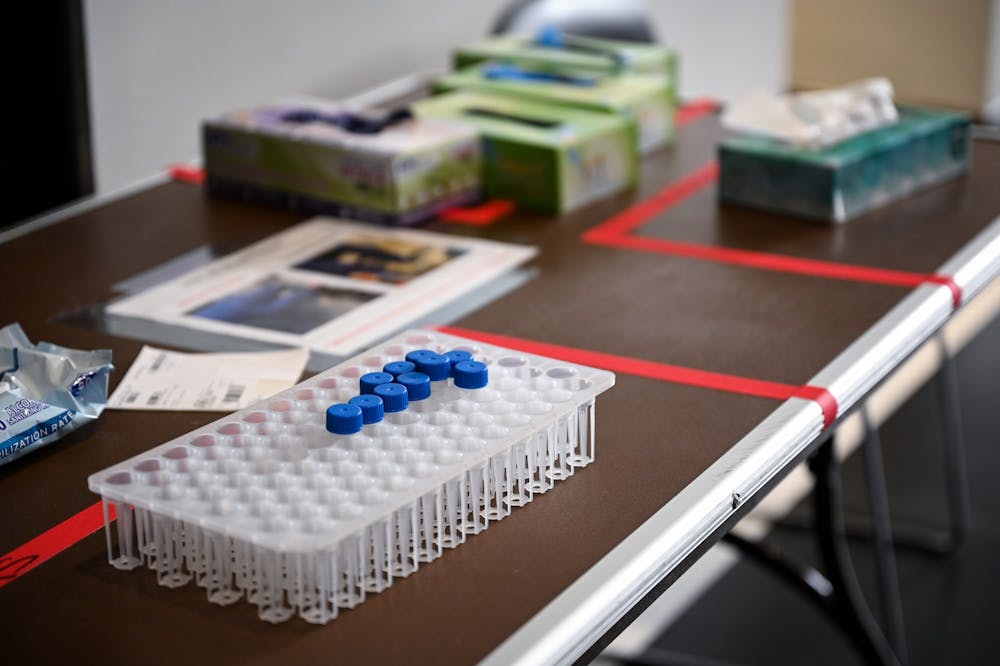
At least two students have tested positive for the B.1.1.7 COVID-19 variant — a more contagious form of COVID-19 — since arriving on campus in the past four weeks.
Campus Health contact tracers have been able to link both cases to travel from the United Kingdom, where the variant was first identified. Chief Wellness Officer Benoit Dubé said the arrival of the B.1.1.7 variant on campus should only reinforce current public health guidelines of daily mask wearing, social distancing, and hand washing.
Chief Operating Officer for Wellness Services Erika Gross said the COVID-19 variant was identified after the two students tested positive and reported recent personal or familial travel from the United Kingdom. This prompted Penn to perform genome sequencing techniques on the samples, which then matched the B.1.1.7 variant, she said.
Gross explained that Penn does not perform genome sequencing — an arduous and time-intensive process — on each student sample, and thus it is not possible to say if there have been more than two B.1.1.7 cases on campus since the University invited all students back to Philadelphia in early January.
Given that both cases were linked to travel, Gross said presence of the B.1.1.7 variant serves as a reminder of the risks that traveling presents, particularly ahead of the first of three Engagement Days on Feb. 12.
"[The presence of B.1.1.7] is another reason that we are really, really discouraging travel. We know members of the Penn community love to travel. It's hard for students not to want to travel over a long weekend, but as much as we can, we need people to stay put," Gross said.
Gross and Dubé emphasized that the students must continue to remain vigilant and follow public health guidelines, especially given the higher transmissibility of the B.1.1.7 variant, as well as other COVID-19 variants.
A new Centers for Disease Control and Prevention study estimates B.1.1.7 to be about 30% to 40% more transmissible than other common variants, confirming previous predictions that it may become the predominant variant in the United States by March. While the B.1.1.7 and other COVID-19 variants have proven to be far more transmissible, they have not been shown to lead to more severe symptoms.
"We're not out of this yet. There's nothing new or different about the public health guidance: This is just another reminder to not be less vigilant. We're entering a very dangerous complacency phase, where we are all exhausted from having to live like this," Dubé said.
The first case of the B.1.1.7 variant in Pennsylvania was reported in Dauphin County, which is just hours northwest of Penn's campus, on Jan 7. Other cases of the variant have been detected throughout the United States, although many have not been linked to travel.
This past week, Penn's undergraduate COVID-19 cases doubled for the second week in a row. Cases increased from 113 to 239 among undergraduates between Jan. 31 and Feb. 6, bringing the weekly undergraduate positivity rate to 4.47%.
"These new variants all share this higher transmissibility characteristic, and if we do not remain vigilant, they will probably slow us down a little bit [in recovering from the pandemic], especially if we let our guard down," Dubé said.
The Daily Pennsylvanian is an independent, student-run newspaper. Please consider making a donation to support the coverage that shapes the University. Your generosity ensures a future of strong journalism at Penn.
Donate






